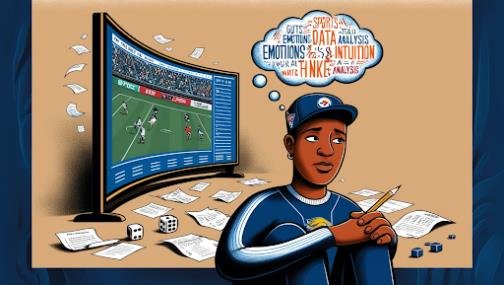In sports betting, data and statistics are essential tools. However, many bettors also rely on something less tangible—gut feeling. This instinct, often shaped by personal experiences, plays a significant role in betting decisions. It can help bettors make quick choices, sometimes even when the odds seem unclear. But why does gut feeling matter, and how does it influence sports wagers? Before you dive into the answers, check out Bizzo Casino for Australian Players and have some fun.
The Power of Personal Experience in Betting
Personal experiences shape how we view the world. For sports bettors, this could mean a deep understanding of a favorite team or player. Fans who watch games regularly, attend matches, or follow local sports culture often develop a unique sense of “knowing” what might happen next. This knowledge comes from more than just statistics—it’s a feeling cultivated over years of observation and involvement.
Consider a bettor who’s been watching their favorite team for years. They may notice small trends that statistics don’t show. A player might have an unreported injury or be underperforming due to personal reasons. Even if the numbers don’t reflect this, the fan’s gut feeling, built over time, might tell them something’s off. Personal experience gives a bettor this edge, as they rely on intuition over pure data.
Gut Feeling: More Than Just a Hunch
The gut feeling in betting isn’t just random. It’s often based on experience, both direct and indirect. These feelings arise from patterns the bettor has seen before. A bettor may have lost a few bets in the past on a similar scenario and learned from that experience. Over time, their brain picks up on cues that help them feel confident in making future decisions.
The Balance Between Logic and Emotion in Betting
Betting is often about balancing logic and emotions. Many people focus on numbers, thinking they’re all that matter. But emotions, especially from personal experience, are important too. A bettor’s feelings for a team or sport can affect their choice, sometimes even more than the numbers.
How Bias Can Influence Gut Feelings
A gut feeling can help in betting, but it also has some downsides. Personal bias is one of the most significant factors. Bettors may allow their personal preferences or history to cloud their judgment. This bias can lead to poor decisions and overconfidence.
The Role of Experience in Building Confidence
Confidence plays a huge role in sports betting. Bettors who have been in the game for years tend to have stronger gut feelings. Their experiences give them a sense of when to bet big and when to hold back. They might not always rely on statistics or odds but instead, trust their accumulated knowledge. Take a quick break and play at Bizzo Casino in NZ online.
Is Gut Feeling Reliable in the Long Run?
Gut feelings can help bettors in the short term, but are they reliable over time? It depends on experience. Experienced bettors who know the game well can trust their instincts. But beginners may find that relying too much on gut feeling can lead to unpredictable results.
Over time, a bettor may learn to balance their gut feeling with statistical analysis. This balance allows them to make smarter, more informed bets. While the odds and stats may not always be 100% accurate, personal experience can provide an edge when paired with data. This blend of intuition and logic creates a more effective strategy for sports betting.
The Psychology of Betting and Gut Instincts
The psychology of betting also plays a crucial role in how gut feelings are developed. Many bettors make decisions based on patterns, even subconscious ones. The brain processes experiences and uses them to form predictions, even without the bettor realizing it. This process is rooted in psychology, where past successes or failures shape future decisions.
Bettors may feel more confident about certain bets simply because their brain associates a particular team or event with previous positive outcomes. This psychological pattern gives them an emotional edge in betting, even when logic might suggest otherwise. But like any psychological pattern, these feelings can also be influenced by external factors, such as mood or personal circumstances. It’s important to be aware of these influences to prevent poor decision-making.










